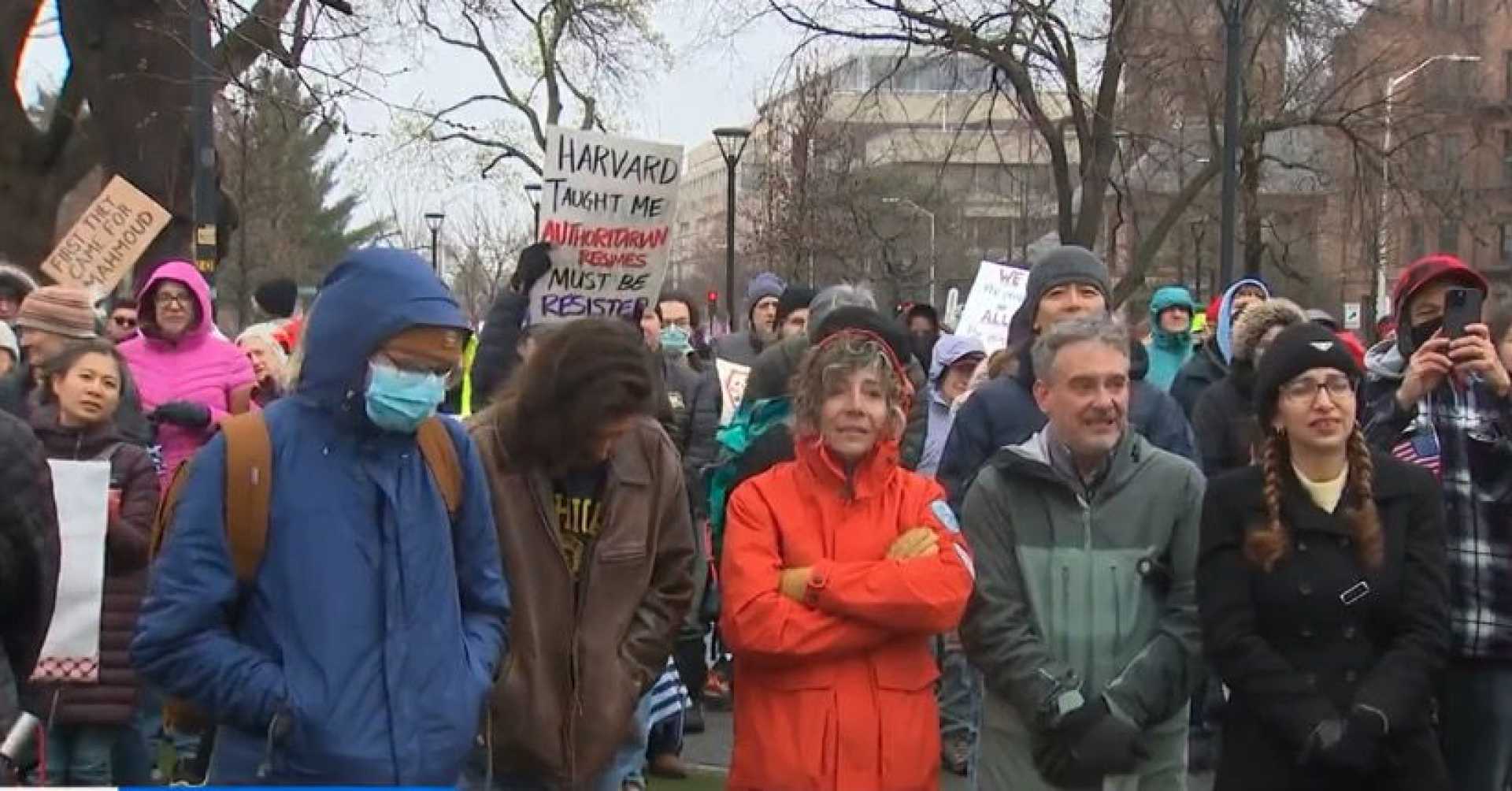Education
Harvard Fights Back Against Trump’s Education Demands Amid Protest

CAMBRIDGE, Mass. — Lawyers for Harvard University announced Monday their firm opposition to demands made by the Trump administration, asserting that the government’s recent measures are an overreach amidst its ongoing scrutiny of alleged antisemitism within elite universities.
The administration’s demands, sent Friday, follow an initial list distributed on April 3, which sought to curtail Harvard’s diversity offices and increase cooperation with federal immigration authorities. Harvard President Alan Garber expressed firm resistance in a campus message, stating, “The University will not surrender its independence or relinquish its constitutional rights.”
This response from Harvard represents a significant moment of defiance against the Trump administration, contrasting sharply with Columbia University, which has already acquiesced to several of the government’s demands, including changes to student disciplinary procedures.
Last week, the Trump administration’s antisemitism task force delivered a detailed letter to Harvard, amplifying its previous requests. In their response, Harvard’s legal team maintained that the university “is not prepared to agree to demands that go beyond the lawful authority of this or any administration.”
Faculty and students demonstrated their support for Harvard’s position during a rally Saturday at Cambridge Common, attended by more than 500 affiliates and local residents. Amidst rainy and cold conditions, attendees listened to speeches emphasizing the need for university autonomy and the protection of academic freedoms. Demonstrators held signs asserting that the institution should adhere to its motto, Veritas, and “grow a spine.”
Abdullah Shahid Sial, a co-president of Harvard College’s student body, articulated the sentiments of many attendees, expressing frustration over the environment international students face. “I didn’t travel 5,000 miles just to be afraid of walking five feet out of my dorm,” he said. Shahid Sial called upon Harvard to uphold values of free expression and thought.
Prominent speeches at the rally included remarks from Cambridge Mayor Denise E. Simmons, who emphasized the city’s role as a defender of liberty, stating, “This city will not bow to intimidation.”
Many speakers drew historical parallels, equating Trump’s approach to tactics used by autocrats. Karl N. Molden, who noted his Austrian heritage, expressed disdain for what he sees as a systematic undermining of democratic principles in the U.S. “If coming from Austria teaches you one thing, it is how aspiring dictators kill democracies from within,” Molden said.
Comments from Tova L. Kaplan, a Jewish student, highlighted concerns that the Trump administration’s actions might exacerbate, rather than alleviate, campus antisemitism. “Some may believe that the Trump administration’s efforts are helping, but I’m here to tell you today: this isn’t how we fight campus antisemitism,” Kaplan stated.
In his closing remarks, Harvard Law School professor Nikolas Bowie urged the Harvard Corporation to join the community in its resistance against the Trump administration, asserting, “When Harvard stands up, we will stand with it.”
This ongoing struggle underscores the larger tension between federal oversight and institutional independence, as institutions like Harvard navigate a complex landscape of governmental demands amid increasing scrutiny related to campus controversies.












